Professional Ethics in Midwifery Practice is an applied ethics book designed for both students and practicing midwives to build ethical thinking in the context of daily practice. This unique text uses an accessible writing style and includes chapters on diversity and justice, informed consent, multiple relationships, confidentiality and privacy, scope of practice, and others. Realistic case examples throughout the text encourage critical thinking in applied ethics. The authors present a unique model for midwives’ ethical thinking and appendices include widely used codes of ethics in the field.
Professional Ethics in Midwifery Practice First Edition
KShs 14,140.00
Professional Ethics in Midwifery Practice is an applied ethics book designed for both students and practicing midwives to build ethical thinking in the context of daily practice. This unique text uses an accessible writing style and includes chapters on diversity and justice, informed consent, multiple relationships, confidentiality and privacy, scope of practice, and others. Realistic case examples throughout the text encourage critical thinking in applied ethics. The authors present a unique model for midwives’ ethical thinking and appendices include widely used codes of ethics in the field.
1 in stock
Related products
-
Nelson Textbook of Pediatrics, 2-Volume Set, 21st Edition
KShs 25,200.00Nelson Textbook of Pediatrics – the reference of choice among pediatricians, pediatric residents, and others involved in the care of young patients. This fully revised edition continues to provide the breadth and depth of knowledge you expect from Nelson, while also keeping you up to date with new advances in the science and art of pediatric practice. Authoritative and reader-friendly, it delivers the information you need in a concise, easy-to-use format for everyday reference and study. From rapidly changing diagnostic and treatment protocols to new technologies to the wide range of biologic, psychologic, and social problems faced by children today, this comprehensive 2-volume reference keeps you on the cutting edge of the very best in pediatric care.
Key Features-
- Includes more than 70 new chapters, including Postural Orthostatic Tachycardia Syndrome (POTS), Rare and Undiagnosed Diseases, Approach to Mitochondrial Disorders, Electronic Nicotine Delivery Systems, Zika, update on Ebola, Epigenetics, Autoimmune Encephalitis, Global Health, Racism, Media Violence, Strategies for Health Behavior Change, Positive Parenting, and many more.
-
- Features hundreds of new figures and tables throughout for visual clarity and quick reference.
-
- Offers new and expanded information on CRISPR gene editing; LGBT health care; gun violence; vaccinations; immune treatment with CAR-T cells; new technology in imaging and genomics; new protocols in cancer, genetics, immunology, and pulmonary medicine; and much more.
-
- Provides fresh perspectives from four new associate editors: Nathan J. Blum of The Children’s Hospital of Philadelphia; Karen Wilson of Mt. Sinai School of Medicine in New York; Samir S. Shah of Cincinnati Children’s Hospital Medical Center; and Robert C. Tasker of Boston Children’s Hospital.
-
- Provides regular updates online, written exclusively for Nelson.
-
- Remains your indispensable source for definitive, evidence-based answers on every aspect of pediatric care.
-
- Enhanced eBook version included with purchase. Your enhanced eBook allows you to access all of the text, figures, and references from the book on a variety of devices.
Author InformationBy Robert M. Kliegman, MD, Professor and Chair Emeritus, Department of Pediatrics, Medical College of Wisconsin, Children’s Hospital of Wisconsin, Milwaukee, Wisconsin and Joseph St. Geme, MD, Chair, Department of Pediatrics, Professor of Pediatrics and Microbiology, Perelman School of Medicine at the University of Pennsylvania; Physician-in-Chief, Leonard and Madlyn Abramson Endowed Chair in Pediatrics, Children’s Hospital of Philadelphia, Philadelphia, Pennsylvania -
-
Integrative Human Biochemistry: A Textbook for Medical Biochemistry
KShs 13,750.00This book covers in detail the mechanisms for how energy is managed in the human body. The basic principles that elucidate the reactivity and physical interactions of matter are addressed and quantified with simple approaches. Three-dimensional representations of molecules are presented throughout the book so molecules can be viewed as unique entities in their shape and function.
The book is focused on the molecular mechanisms of cellular processes in the context of human physiological situations such as fasting, feeding and physical exercise, in which metabolic regulation is highlighted. Furthermore the book uses key historical experiments that opened up new concepts in Biochemistry to further illustrate how the human body functions at molecular level, helping students to appreciate how scientific knowledge emerges.
This book also:
- Elucidates the foundations of the molecular events of life
Uses key historical experiments that opened up new concepts in Biochemistry to further illustrate how the human body functions at molecular level, helping students to appreciate how scientific knowledge emerges
- Provides realistic representations of molecules throughout the book
Advance Praise for Integrative Human Biochemistry
“This textbook provides a modern and integrative perspective of human biochemistry and will be a faithful companion to health science students following curricula in which this discipline is addressed. This textbook will be a most useful tool for the teaching community.”
- Elucidates the foundations of the molecular events of life
-
Medical Microbiology, International Edition, 19th Edition
KShs 7,462.00Medical microbiology concerns the nature, distribution and activities of microbes and their impact on health and wellbeing. In spite of the introduction of many antimicrobial agents and immunisations, we continue to face major challenges in combatting infection, not least the gathering crisis in antimicrobial resistance.
Now in a fully revised and updated 19th edition, Medical Microbiology provides comprehensive coverage of infection from the microbial perspective, combining a clear introduction to key principles with a focus explicitly geared to modern clinical practice. It provides ideal coverage for medical and biomedical students – with ‘Key Points’ boxes throughout to highlight the essentials – and sufficient detail to also inform specialists in training.
Building on the success of previous editions, updates in Medical Microbiology 19e include:
-
- New and expanded coverage of hot topics and emerging areas important to clinical practice, including:
-
-
- Genomics
-
-
-
- The Human Microbiome
-
-
-
- Direct acting antiviral agents for the treatment of HCV infection
-
-
-
- Molecular methods in diagnostic microbiology
-
-
-
- Antibiotic Stewardship
-
-
- BONUS electronic materials to enhance your learning, including:
-
-
- Clinical cases – to introduce how patients with infections present and help relate key principles to practice
-
-
- MCQs for each chapter – to check understanding and aid exam preparation
-
-
Mims’ Medical Microbiology and Immunology, International Edition, 7th Edition
KShs 5,642.00MIMS’ Medical Microbiology and Immunology is loved internationally for its thorough yet easy-to-follow coverage of microbiology, infectious diseases, and immunology as a dynamic interplay between microbes and host. Covering the fundamentals of these closely linked disciplines, MIMS’ takes a systems approach to elaborate on epidemiology, clinical presentation, pathogenesis, and diagnostic approaches, as well as treatment and infection control considerations, supplemented by case-based examples. Complex scientific and clinical concepts are explained clearly and simply with the help of illustrations and a range of accompanying online content. Students will come away with a deep understanding of topics and processes, and will return to this book for reference time and again.Key Features- Clear writing and easy-to-understand explanations – perfect for students learning to grasp the fundamentals of both microbiology and immunology
- User-friendly format with colour coding, key concept boxes, and dynamic illustrations for easy navigation
- Organised by body system – goes beyond the ‘bug parade’ to help you understand clinical context
Author InformationBy Richard Goering, BA MSc PhD, Professor and Chair, Department of Medical Microbiology and Immunology, Creighton University School of Medicine, Omaha, Nebraska.; Hazel M. Dockrell, BA (Mod) PhD, Professor of Immunology, Faculty of Infectious and Tropical Diseases, London School of Hygiene and Tropical Medicine, London, UK; Mark Zuckerman, BSc(Hons), MBBS, MRCP, MSc, FRCPath, Consultant Virologist and Honorary Senior Lecturer, South London Specialist Virology Centre, King’s College Hospital NHS Foundation Trust, King’s College London School of Medicine, London, UK; Peter L. Chiodini, BSc, MBBS, PhD, FRCP, FRCPath, FFTM, RCPS(Glas), Consultant Parasitologist, Hospital for Tropical Diseases, London and Honorary Professor, London School of Hygiene and Tropical Medicine, London, UK -
The Handbook of Medical Image Perception and Technique
KShs 11,200.00This state-of-the-art book reviews key issues and methods in medical image perception research through associated techniques, illustrations and examples. Written by key figures in the field, the book covers a range of topics including the history of medical image perception research, the basics of vision and cognition, and dedicated application areas, especially those concerned with the interface between the clinician and the display of medical image data. It summarizes many of the basic techniques used to conduct and analyze medical image perception and observer performance research, allowing readers to understand basic research techniques so they can adopt them for use in their own studies. Written for both newcomers to the field and experienced researchers, this book provides a broad overview of medical image perception, and will serve as a reference volume for years to come.
-
Clinical Examination Essentials An Introduction to Clinical Skills (and how to pass your clinical exams)
KShs 7,000.00Talley and O’Connor’s Clinical Examination Essentials 5e provides an introduction to the skills required to successfully pass your clinical exams.
It offers tips on how to impress your examiners and highlights key steps in taking a history and conducting a physical examination. With practice these will become second nature, even under the stress of exam conditions.
We hope that Talley and O’Connor’s Clinical Examination Essentials inspires you to master your clinical skills and embark on a successful medical career. If you are looking to further develop your history taking and examination techniques, Talley and O’Connor’s Clinical Examination: A Systematic Guide to Physical Diagnosis provides greater detail
-
Muir’s Textbook of Pathology
KShs 3,800.00First published in 1924, Muir’s Textbook of Pathology has set a standard in this subject by linking the scientific aspects that underlie pathological processes, relating these pathological changes specific to the various organ systems, and placing all in context for the student of clinical
medicine and surgery. Subsequent editions have retained this popular approach, while introducing novel concepts and taking into account the evolution in the teaching of general pathology that has occurred.This fully-revised 14th edition will ensure that the title retains its preeminence in the field with a clearly defined and easy-to-follow structure, new photographs and explanatory line diagrams, all in full color, and applicability to both systems-based and problem-based undergraduate courses.
Focusing on core material without neglecting up-to-the-minute detail, this book is a key text for students, but also has significant appeal for pathology residents. -
An Introduction to Forensic Genetics, 2nd Edition
KShs 16,198.00This is a completely revised edition of a comprehensive and popular introduction to the fast moving area of Forensic Genetics. The text begins with key concepts needed to fully appreciate the subject and moves on to examine the latest developments in the field. Now illustrated in full colour throughout, this accessible textbook includes numerous references to relevant casework. With information on the full process of DNA evidence from collection at the scene of a crime to presentation in a legal context this book provides a complete overview of the field.
Key Features:
- Greater in-depth coverage of kinship problems now covered in two separate chapters: one dealing with relationships between living individuals and the other covering identification of human remains.
- New chapter on non-human forensic genetics, including identification of bacteria and viruses, animals and plants.

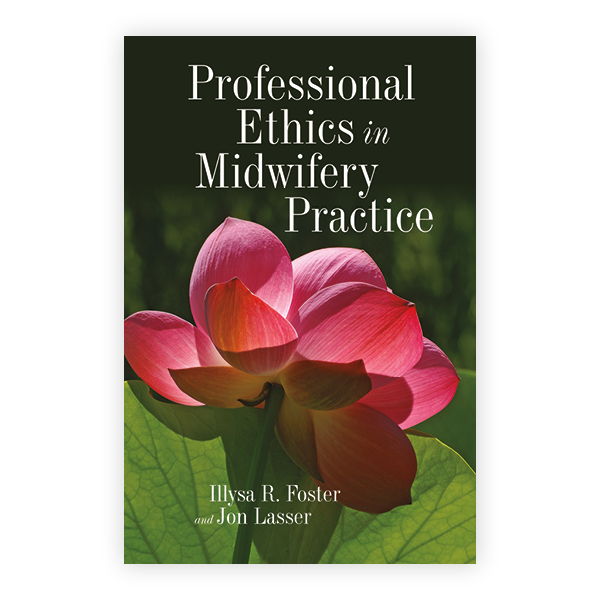


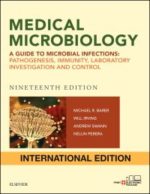
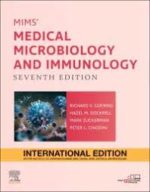
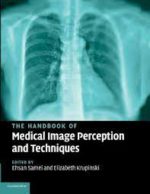
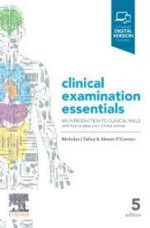
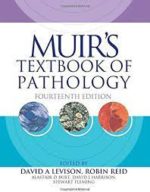

Be the first to review “Professional Ethics in Midwifery Practice First Edition”